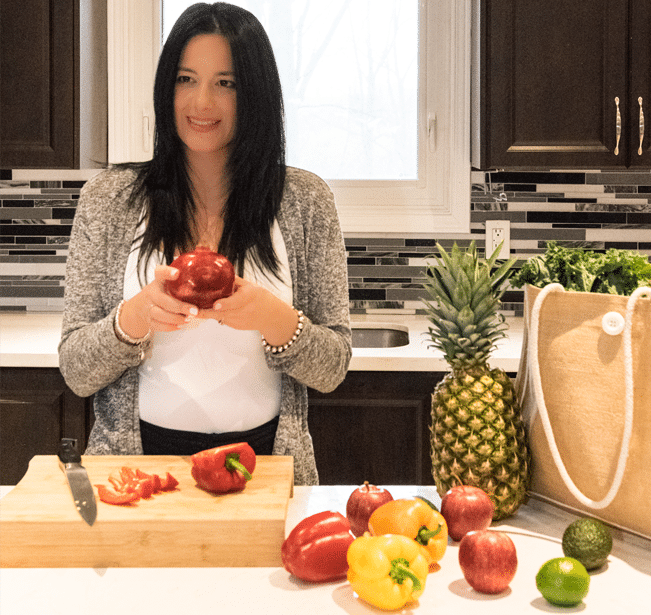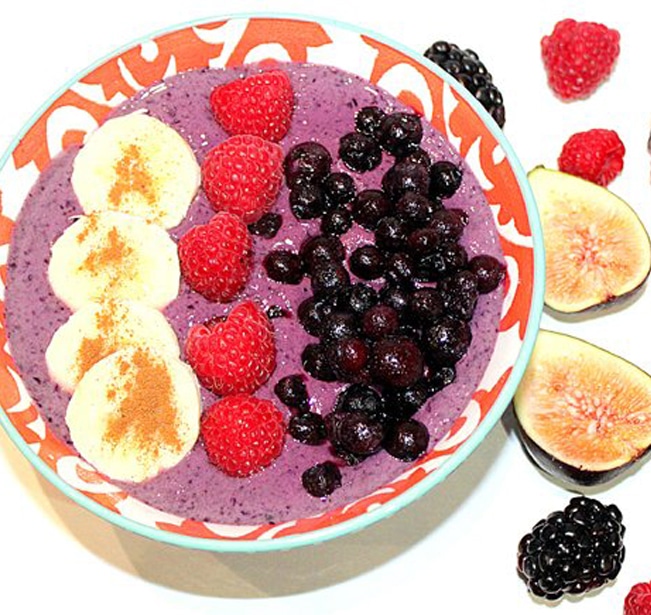Vital Diet Tips for 2023 You Never Knew You Needed
January 2, 2023
As the new year approaches, many of us are thinking about ways to improve our health and well-being.
While there are countless “quick fix” diets and fitness fads that promise amazing results, the truth is that lasting health and happiness come from making sustainable lifestyle changes.
My tips below are based on my clients’ major struggles that I see when we first start our sessions. This article is not about “what you should eat”, but rather how you should approach nutrition, which in my opinion, is vital.
Here are some tips for adopting a healthy lifestyle in 2023 and beyond. I hope you will thoroughly reflect on each point and fully understand its significance to a truly healthy and happy lifestyle.
Say Bye Bye to Quick Fixes Forever
We seriously need to STOP looking for quick fixes. Quick fixes might be tempting, but are usually more damaging than helpful. I must say, from what I see in my practice, the desire for quick fixes is at an all time high. I blame this on the abundance of false nutrition information people are exposed to on social media on a daily basis, and our societies’ ability to obtain everything quickly nowadays.
Fad diets usually promise quick results, but they are often not sustainable or healthy in the long term. Results are rarely permanent and can often lead to yo-yo dieting and a very unhealthy mindset with food. I often see patients in my private practice who are trying to follow their version of a fad diet but end up in a viscous cycle of restricting and binge eating. A classic example I see is people saying they are trying not to eat carbs. So, at meals, they avoid bread, pasta, rice, etc, and then binge on cookies and chips in the evening. This doesn’t make much sense, does it!? Also, this is truly damaging physically and mentally. The focus on rapid weight loss and strict food rules can create an unhealthy obsession with food and weight, and may contribute to the development of disordered eating behaviours. Instead of focusing on these types of diets, it is critical to make real lifestyle changes that can lead to permanent weight loss and improved health. Hint: avoiding carbs is not a lifestyle change!
Develop a Healthy Relationship Towards Food
Having a negative relationship with food can harm one’s physical and mental health. This ties in very closely to point number one about fad dieting and its similar damaging effects. Negative self talk can lead to unhealthy eating habits, such as binge eating, and again, yo-yo dieting, and can even cause eating disorders. Developing a healthy relationship with food is an important step towards improving your overall health and well-being. Negative self-talk about eating habits, such as saying that a certain food was “bad” or that indulging in a treat “ruined” a diet, can create guilt and shame around food and harm one’s relationship with it. So, one key aspect of this is letting go of guilt around food and meals. It’s important to remember that no single food or meal is “good” or “bad”—it’s all about balance and moderation in the long term, and the totality of one’s diet. If you overeat at one meal, try not to beat yourself up about it. Instead, focus on making healthier choices at your next meal or snack. It’s also important to break the cycle of restriction and bingeing (that largely stems from fad dieting) which can lead to feelings of deprivation and ultimately lead to more overeating and bingeing. Instead, aim for a more balanced approach to eating that includes a variety of nutritious foods and allows for the occasional treat without guilt! This can help you feel more in control of your eating habits and ultimately lead to less overeating and bingeing.
Practice Mindful Eating
Mindful eating involves paying attention to your body’s hunger and fullness cues, and eating in a way that is enjoyable and satisfying. This can help you make healthier food choices and avoid overeating. Some tips for mindful eating include eating slowly, avoiding distractions while eating, and taking the time to make healthy choices and appreciate your food. Learning to eat mindfully can be very helpful at managing weight for the long term.
Plan Ahead
It can be difficult to make healthy eating choices when you are pressed for time or caught off guard by hunger. By planning ahead and packing healthy meals and snacks, you can set yourself up for success and avoid making poor food choices when you are on the go. Planning and cooking healthy meals ( or parts of meals) in advance on the weekends can help you stay on track during a busy week. This can involve prepping ingredients, making entire meals, or portioning out single servings to grab and go during the week.
Start Focusing on Health and Well-being
What I mean here, is develop a healthy lifestyle for the sake of being healthy and not just to lose weight. Focusing on health and well-being is a holistic and sustainable approach to achieving and maintaining a healthy weight and good health. This approach involves paying attention to how you feel physically and emotionally and making choices that support overall well-being. By focusing on health and well-being, you can make progress towards your goals while also cultivating a sense of balance and self-care. This approach can be more sustainable in the long term and will probably lead to better overall health outcomes and the ability to reach and maintain a healthy weight.

Focus on Small Meaningful Habit Changes
My absolute favourite image that I’ve seen this past year is this above ladder photo depicting the importance of small steps. It really says a lot. Large steps can be very overwhelming for some people. Smaller steps are much more attainable. Focusing on small habit changes rather than trying to overhaul your entire diet all at once can be a more effective and sustainable approach to improving your overall health and well-being. Rather than trying to implement a complete overhaul of your habits, try making small, incremental changes that are easier to incorporate into your daily routine. Work on one meaningful habit at a time.
For example, you might start by switching your choice for your afternoon snacking choices, or making a conscious effort to increase your vegetable intake throughout the day. As you make these small changes and see the benefits, you can then build on them and make additional changes over time. This gradual approach can help you form lasting healthy habits without feeling overwhelmed or deprived.
Exercise Patience and Trust in the Process
Being patient but consistent when it comes to diet is key to achieving long term success. It’s important to remember that making healthy lifestyle changes takes time and effort, and it’s normal to encounter setbacks or challenges along the way. However, it’s important to stay committed to your goals and to be consistent in your efforts, even if progress seems slow. With patience and consistency, you can make lasting changes that will have a positive impact on your health and well-being. It’s also important to be kind to yourself and not to get discouraged if you don’t see immediate results. Trust in the process and remember that making healthy choices on a consistent basis will lead to lasting success.
Seek support
Adopting a healthy lifestyle can be challenging, and it can be helpful to have support from others. Consider seeking support from a registered dietitian to help you reach your health and well-being goals.
Remember, the goal is progress, not perfection. It’s okay to have setbacks or slip-ups – what matters is that you keep working towards a healthier, more balanced lifestyle that you LOVE!




Totally love this post. It really resonate with me and that ladder with taking small steps is definitely attainable. I’m not making resolutions but goals to achieve optimal health and lifestyle.
Thanks Elizabeth for a great read and informative content.
Amazing ! Keep it going !